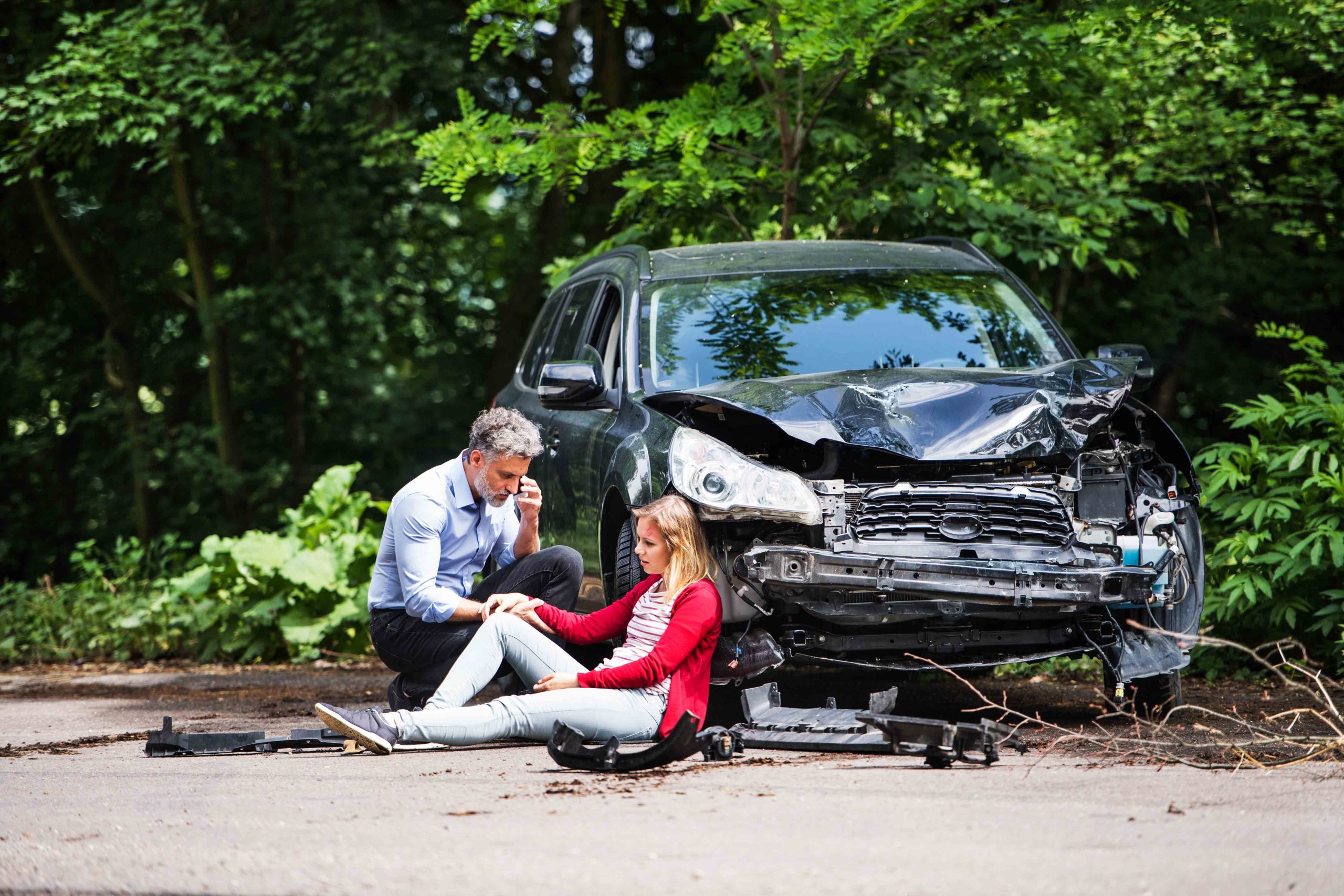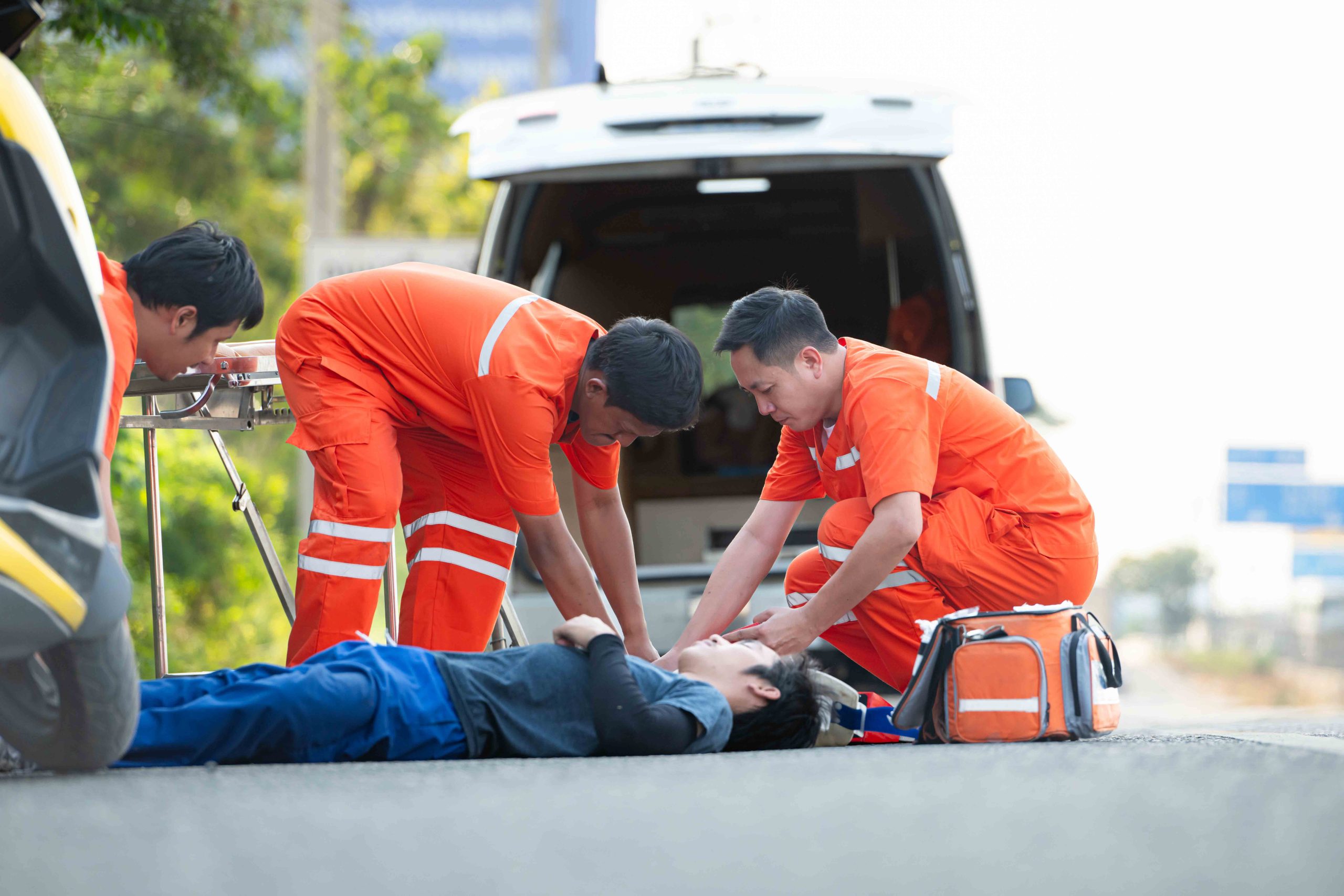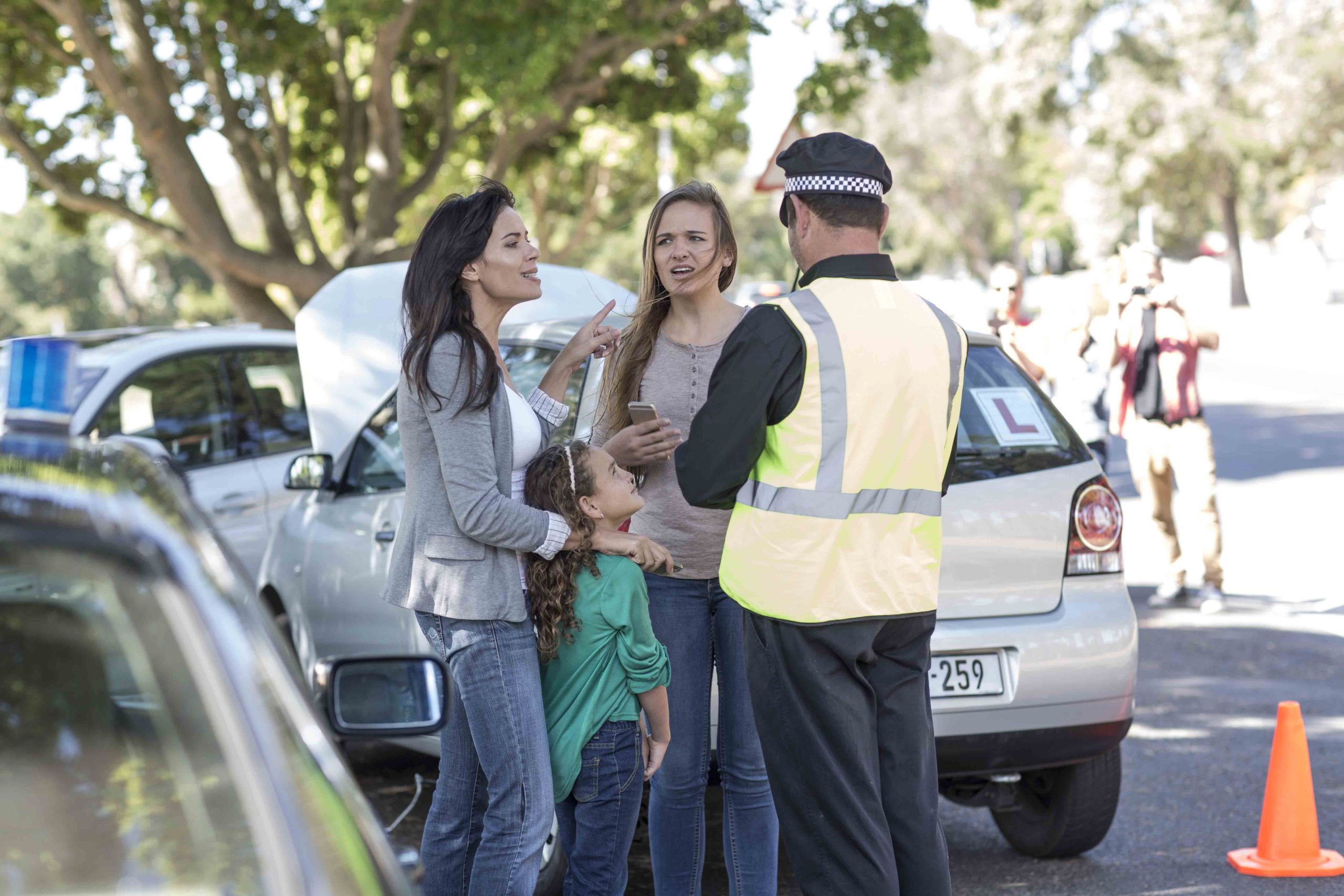I Got Hit By A Car But I Am Fine
Getting hit by a car is a frightening experience, even if you come out of it unscathed. The shock and adrenaline rush can mask potential injuries and make it difficult to think clearly.
In such a stressful situation, it’s easy to forget what needs to be done next. However, knowing what steps to take afterward is crucial for your well-being and for potential legal and insurance processes.
#1 Assess Your Condition
Immediately after the accident, it’s important to check yourself for any injuries. Adrenaline can mask pain, so even if you feel fine, take a moment to carefully assess your body. Ignoring potential injuries can lead to complications later, so take the time to do a thorough self-examination.
Check for Visible Injuries:
-
- Look for any cuts, scrapes, or bruises on your skin. These can be indicators of more serious injuries beneath the surface.
- Check for swelling, which can signify internal injuries or broken bones.
-
- Move each part of your body slowly to see if you feel any pain or discomfort. Pay attention to areas that might hurt only when moved.
- Be mindful of headaches, dizziness, or any changes in vision, as these can be signs of a concussion.
-
- Notice if you feel unusually cold, weak, or dizzy, as these can be signs of shock, which requires immediate medical attention.
- Pay attention to your breathing. Rapid or shallow breathing can also indicate shock.
-
- Try to gently move your limbs and joints. If you feel any resistance or pain, stop immediately and take note of the affected area.
- Be cautious with neck and back movements, as injuries in these areas can be particularly serious.
-
- Assess your mental clarity. Confusion, memory loss, or difficulty concentrating can be signs of a concussion or other head injuries.
- Communicate with someone nearby to confirm you are thinking and speaking clearly.

#2 Move to Safety
If you are able to move, getting out of the roadway to a safe location is critical. Staying in the path of traffic can result in further accidents or injuries, both to yourself and to others. Moving to safety allows you to gather your thoughts, assess the situation more clearly, and start the process of addressing the incident.
Steps to Move to Safety
Assess Your Ability to Move:
-
- Before moving, take a moment to ensure you can move without causing further injury. If you feel severe pain or suspect serious injuries, it’s best to stay still and wait for emergency services.
Identify a Safe Location:
-
- Look for a sidewalk, grassy area, or another place away from traffic. Ensure the spot is visible to others to avoid being hit by another vehicle.
- If you are on a highway or a busy road, try to move behind a barrier or guardrail if possible.
Signal for Help:
-
- If you cannot move on your own, try to signal for help from nearby drivers or pedestrians. Waving your arms or calling out can attract attention to your need for assistance.
- Use your phone to call emergency services if you are able.
Avoid Further Hazards:
-
- Be cautious of other hazards such as debris, slippery surfaces, or unstable ground as you move to safety.
- If it’s dark, use your phone’s flashlight or another light source to make yourself visible to others.
Stay Calm and Gather Information:
-
- Once you are in a safe location, take a few deep breaths to calm yourself. This will help you think more clearly and assess the situation.
- Look around for any potential witnesses, and take note of the vehicle that hit you, including its make, model, and license plate number.
Wait for Help:
-
- After moving to safety, wait for emergency services to arrive. Do not attempt to leave the scene or confront the driver if you feel threatened.
- Use this time to contact family or friends to inform them of the situation and to get support.
#3 Call Emergency Services
Why Call Emergency Services?
Official Documentation:
-
- Police Report: The police will document the scene and create an official report. This report includes details such as the location, time, and circumstances of the accident, as well as statements from you, the driver, and any witnesses.
- Insurance Claims: An official police report is essential for filing an insurance claim. It provides an unbiased account of the incident, which can help resolve disputes with the insurance company or the other party involved.

-
- Immediate Check-Up: Medical personnel can provide an on-the-spot assessment to check for injuries that may not be immediately apparent. Adrenaline can mask pain, and some injuries, like concussions or internal damage, may not show symptoms right away.
- Thorough Evaluation: Paramedics have the training to identify signs of trauma that you might overlook. They can determine if you need to be transported to a hospital for a more comprehensive examination.
Legal Protection:
-
- Accurate Records: Having emergency services involved ensures that all details of the incident are accurately recorded. This can protect you in case of legal disputes or if the driver denies responsibility.
- Witness Statements: Police can collect statements from witnesses while the details are still fresh in their minds. This information can be vital for legal and insurance processes.
Steps to Take When Calling Emergency Services
Dial 911:
-
- Use your phone to call 911 immediately after the accident. Clearly state that you have been hit by a car and provide your location.
- If you are unable to call, ask a bystander to do it for you.
Provide Necessary Information:
-
- Give the dispatcher your name, location, and a brief description of the accident. Mention if there are any immediate dangers or if traffic needs to be directed around the scene.
- Inform the dispatcher about any injuries, even if they seem minor.
Follow Instructions:
-
- Follow any instructions given by the dispatcher. They may ask you to stay on the line, move to a safer location, or perform basic first aid while you wait for emergency services to arrive.
Stay Calm:
-
- Remaining calm can help you communicate more effectively and ensure that you relay all necessary information. Take deep breaths and focus on providing clear and concise details.
Wait for Assistance:
-
- Stay at the scene until emergency services arrive. Do not attempt to leave or move too much if you suspect any injuries. Let the professionals assess the situation and provide the necessary care.
#4 Exchange Information
Details to Collect from the Driver:
Contact Information:
-
- Name: Ensure you get the full name of the driver.
- Phone Number: Obtain their primary contact number for further communication.
- Address: If possible, get their home address.
Vehicle Information:
-
- License Plate Number: Note the license plate number of the vehicle involved.
- Make and Model: Record the make, model, and color of the car.
- Driver’s License Number: This can help verify the identity of the driver.
Insurance Information:
-
- Insurance Company: Get the name of their insurance provider.
- Policy Number: Record the policy number for reference.
- Insurance Agent Contact: If available, ask for the contact details of their insurance agent.
Details to Collect from Witnesses:

-
- Names: Get the names of any witnesses.
- Phone Numbers: Obtain their contact numbers.
- Statements: If they are willing, ask them to provide a brief written or recorded statement about what they saw.
-
- Insurance Claims: Having detailed information ensures that your insurance claim can be processed smoothly.
- Legal Protection: Accurate information can protect you in case of legal disputes or if the other party contests your account of the incident.
- Follow-Up: You may need to contact the driver or witnesses later for additional information or clarification.
#5 Document the Scene
Steps to Document the Scene:
Photograph the Scene:
-
- Accident Location: Take wide shots of the accident location, including street names, traffic signs, and signals.
- Vehicles: Capture photos of all vehicles involved, focusing on points of impact and any visible damage.
- Your Injuries: Document any injuries you have sustained, even if they seem minor at the time.
Take Detailed Notes:
-
- Time and Date: Record the exact time and date of the accident.
- Weather Conditions: Note the weather conditions, such as rain, fog, or clear skies.
- Traffic Conditions: Describe the traffic conditions at the time of the accident.
Sketch the Scene:
-
- Accident Diagram: Draw a simple diagram showing the position of the vehicles before, during, and after the accident.
- Landmarks: Include landmarks, such as buildings, trees, or road signs, to provide context.
Record Conversations:
-
- Driver Statements: If possible, record any statements made by the driver about how the accident occurred.
- Witness Statements: Record or write down statements from witnesses.
-
- Insurance Evidence: Clear documentation helps substantiate your insurance claim.
- Legal Support: Detailed records can be crucial if you need to take legal action or defend yourself against claims.
- Memory Aid: Accurate documentation helps you recall details later, ensuring consistency in your statements.
#6 Monitor Your Health
Steps to Monitor Your Health:

-
- Pain and Discomfort: Pay attention to any new pain or discomfort, no matter how minor.
- Mobility: Notice any changes in your ability to move or perform daily activities.
Watch for Delayed Symptoms:
-
- Headaches and Dizziness: These can be signs of a concussion or other head injury.
- Neck and Back Pain: Whiplash and other injuries may not be immediately apparent.
- Emotional Changes: Monitor for anxiety, depression, or other emotional changes, as these can indicate psychological trauma.
Keep a Health Journal:
-
- Daily Entries: Write down any symptoms you experience each day, including their severity and duration.
- Medical Visits: Record details of any doctor visits, including diagnoses and treatments.
Seek Medical Attention for New Symptoms:
-
- Prompt Action: If you notice any new or worsening symptoms, seek medical attention immediately.
- Follow-Up: Attend all follow-up appointments and adhere to any recommended treatments.
-
- Early Detection: Monitoring your health allows for early detection and treatment of injuries.
- Medical Records: Documenting your symptoms provides a clear medical history for future reference.
- Legal and Insurance Claims: Detailed health records support your claims for compensation and ensure you receive appropriate care.
#7 Consult a Lawyer
When to Consult a Lawyer:
Delayed Injuries:
-
- New Symptoms: If you develop new symptoms days or weeks after the accident, a lawyer can help link these injuries to the incident.
- Worsening Conditions: A lawyer can assist if your initial injuries worsen over time, affecting your ability to work or perform daily activities.
Insurance Complications:
-
- Claim Denials: If your insurance claim is denied or underpaid, a lawyer can negotiate on your behalf.
- Disputes: A lawyer can help resolve disputes with the other party’s insurance company or with your own insurer.
Legal Action:
-
- Filing a Lawsuit: If necessary, a lawyer can help you file a lawsuit to seek compensation for medical bills, lost wages, and other damages.
- Defense: If the other party files a lawsuit against you, a lawyer can provide a defense and protect your interests.
Benefits of Consulting a Lawyer:
Expert Advice:
-
- Legal Guidance: A personal injury lawyer can explain your rights and options, helping you make informed decisions.
- Case Evaluation: They can evaluate the strength of your case and advise on the best course of action.
Negotiation Skills:
-
- Insurance Negotiations: Lawyers have experience negotiating with insurance companies to secure fair settlements.
- Settlement Offers: They can review settlement offers to ensure they cover all your expenses and losses.
Representation:
-
- Court Representation: If your case goes to court, a lawyer can represent you, presenting evidence and arguing your case.
- Documentation: Lawyers handle all necessary documentation and ensure that deadlines are met.
Peace of Mind:
-
- Reduced Stress: Having a lawyer handle your case allows you to focus on recovery without the added stress of legal and insurance issues.
- Confidence: Knowing a professional is advocating for your rights provides confidence and reassurance during a challenging time.
Conclusion
Secure the Support You Deserve After a Car Accident
Experiencing a car accident can leave you dealing with physical injuries, emotional distress, and financial challenges. During such difficult times, having a skilled legal professional by your side is essential. A Houston car accident lawyer can offer the guidance, support, and representation you need to navigate the legal complexities and secure the compensation you deserve.
Get the help you need today:
6420 Richmond Ave. Ste. #135
Houston, TX 77057
Phone: (713) 974-0388
Fax: (713) 974-0003

